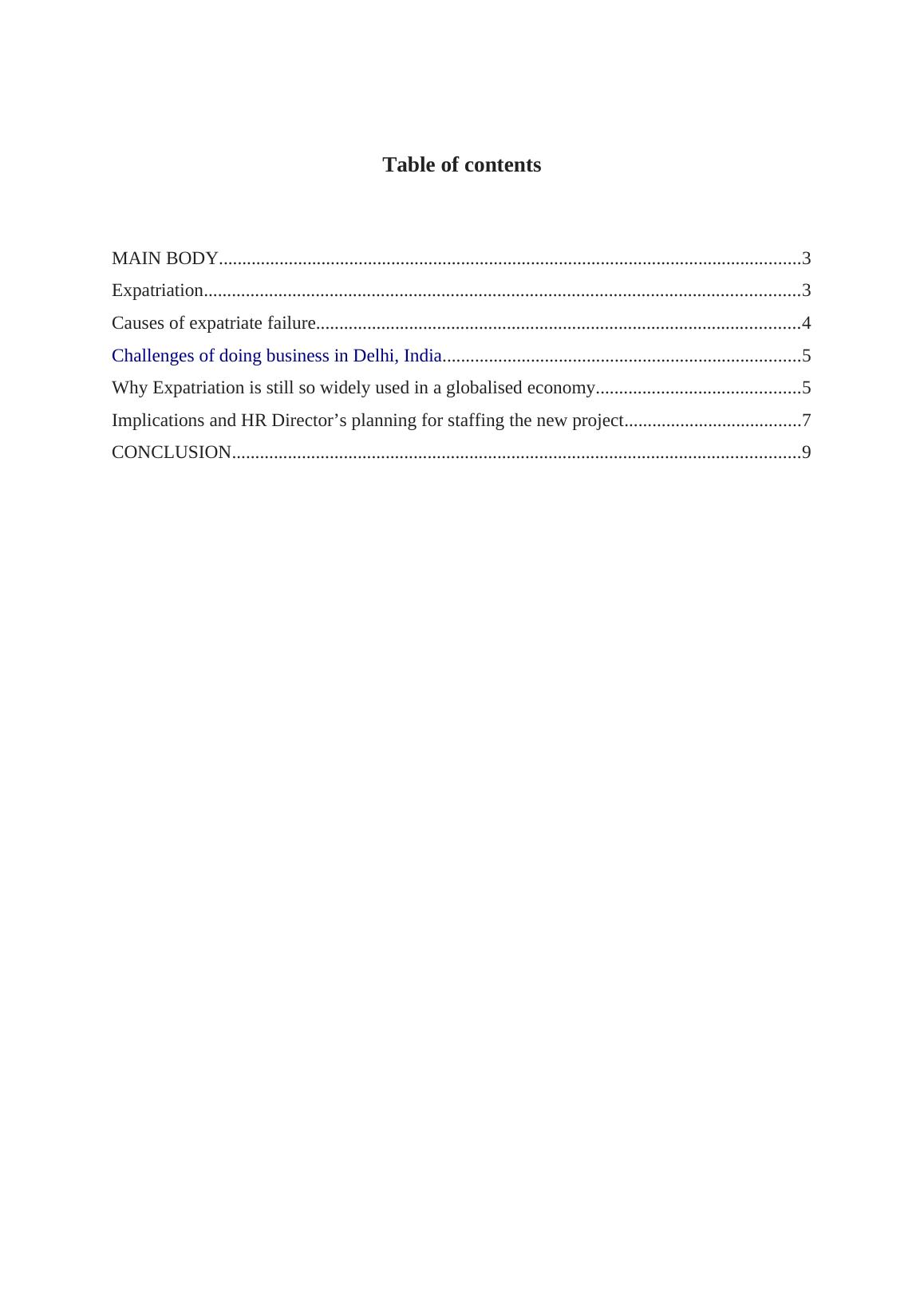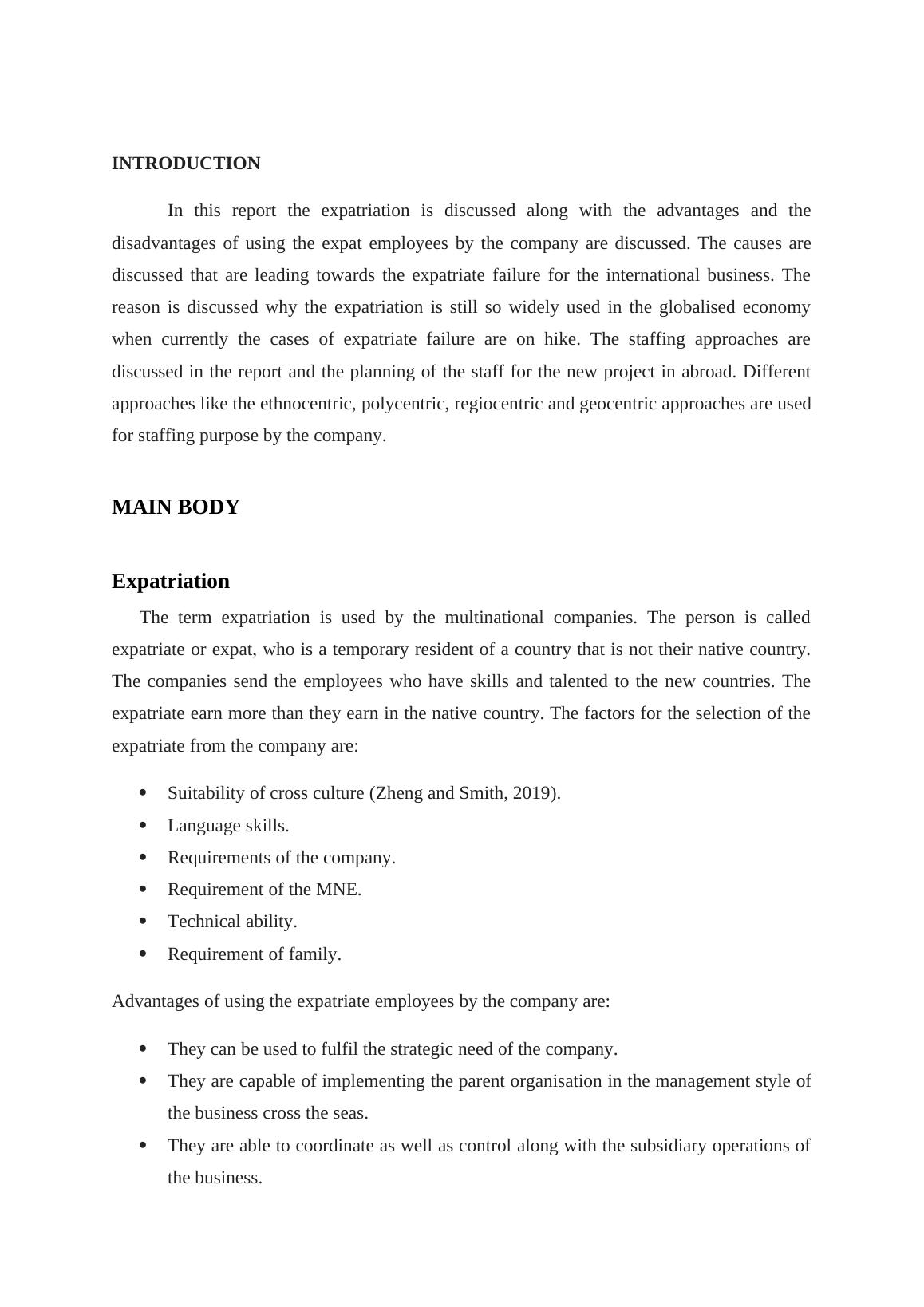Expatriation in International Management
Added on 2022-12-09
10 Pages2659 Words306 Views
End of preview
Want to access all the pages? Upload your documents or become a member.
Why Expatriation is Widely Used in a Globalised Economy
|8
|2614
|484
Compensation and Benefits for Expatriates
|5
|1086
|73
Challenges Faced by Expatriates in Employment Relations in India
|17
|1338
|37
Why Expatriation is Widely Used in a Globalized Economy
|9
|2599
|295
International HRM: Practices, Issues and Challenges
|15
|1037
|297
International_Management_Part_2
|13
|4006
|23



